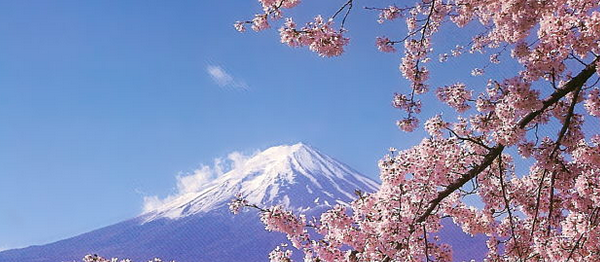Why Japan will Default
By Will Hart

While Portugal, Italy, Ireland, Greece and Spain, the PIGS, get all the negative press, Japan by far has the largest national debt at 240% above GDP. Why are the PIGS the deadbeats when they have an average debt-to-GDP ratio of about 140% by comparison?
Moreover, you would think the sky is falling on the U.S. where the media and congress get apoplectic over the national debt. It is true that America has the largest debt level in the world at $18.1 trillion, but that just barely pushed above its GDP level in 2014, to 106%.
Then, we must ask does the US congress and media fret over the national debt raising the specter of bankruptcy, but fail to mention that Japan's debt absolutely dwarfs theirs? In short, why is Japan being given special treatment and the PIGS the bums rush? The answer is simple, geopolitics.
Japan is truly the elephant standing invisibly in the middle of the room waiting to crush everyone when the country defaults. The land of the rising sun is, in fact, the land that the sun is setting on.
Perhaps the reason the international press ignores this ticking, debt time-bomb is due to the fact that the Japanese fund it internally. At some $10 trillion, the Japanese bond market is huge, second only to America's, but 95% of the bonds are domestically held. Compare that to the US where foreigners (including China, Russia) hold about 45%.
Does that mean that the rest of the world can or should simply ignore the train wreck that Abenomics will soon cause? No, because Japan has the third largest economy in the world. When it collapses the global economy will go with it.
This brings up the next serious issue. While the Federal Reserve's quantitative easing policy has garnered global worry and frustration, the Japanese version is far more radical and seldom if ever mentioned.
When finance minister Kuroda announced the 2-2-2 policy in 2013 he essentially declared Japan's intent to commit ritual suicide (Hari Kari) of their currency, the yen.
In order to achieve a 2% inflation rate, in two years, the central bank committed to doubling the money supply. Anyone that doubts central banks cause inflation, simply by printing more money, ought to pay serious attention.
In the end fiat money is like any other commodity. If money is scarce it rises in value, if there is an oversupply, it falls. Of course the yen has, and is, declining in value against the dollar by about 20% since oil prices collapsed.
Japanese economy has been stagnant for 20 years
The author would compare this policy to building nuclear power plants on one of the most earthquake-prone islands in the world. Yes, Fukushima was an accident waiting to happen it was just a matter of time. This is truer and more predictable for the yen and the Japanese economy as a whole.
Japan has been stuck in neutral with a stagnant, deflating economy for twenty years. The world scratches its collective head and wonders why. But there is no mystery. The answer is as painfully simple as it is irresolvable; the Japanese population is in decline.
The country has had a low birth rate for forty years. At the same time it increased the average life expectancy to 80. Economists and politicians were too busy crunching financial numbers and analyzing econometric models to realize that a falling birth rate, plus rising longevity, would produce a comatose, shrinking economy.
The Japanese leaders eventually realized this but too late. Abenomics is Japan's swan song. They have decided to throw caution to the wind, destroy the yen and go down in flames. The world is also wondering how central banks (almost all) can shovel money out the door with near zero interest rates?
Japan has been the canary in the mineshaft in this arena too. Their central bank has had the lowest interest rates in the world for many years. In essence, they, and the FED together, are flooding the globe with yen and dollars. Yet in spite of pumping trillions of yen and dollars into their economies both countries have anemic growth rates, Japan's dangerously so.
The author claimed that the Japanese version of quantitative easing has been even been more radical than the FEDs. The reason for that is simple. Japan's economy is 1/3 the size of the US. But its central bank has been pumping the equivalent of $72 billion dollars a month into the system, compared to the FED's $85 billion.
However, this massive stimulus only produced a 0.4 GDP growth rate in Jan. 2015 and -0.6 in the 4th quarter preceded by -1.9 in the 3rd qt. of 2014, in other words more negative growth! That has caused the government to continue the massive stimulus nonstop.
The country already has full employment and full capacity utilization. The pedal is to the metal. We are watching the economic version of Fukushima being played out before our eyes..
Why is it a certainty that Japan will meltdown and default? The short answer is debt service.
Again, why should the specter of tiny Greece, a GDP far less than California, going into default be raised and not Japan? Answer: close cooperation with US. Japan
In the past, it could have been argued that the country has a positive balance of trade surplus. It also has a hard-working, well-educated workforce. These will pull it out of the slump. But Japan ran a trade deficit for the first time in 2013-'14; and the intangibles really do not matter in the face of the negative demographics.
Now, returning to the yen and debt/bond market issues we find the following.
As the yen has imploded and continues to lose value -- inflation will rise as Abe desires -- but as it does interest rates will have to edge up and the value of bonds drop. In addition, the cost of imports will keep rising. In other words Japanese bond holders, and even shareholders and then consumers, are going to watch their yen and financial assets shrink in purchasing power, real value.
What does it matter if Japanese shares rise, or even if oil prices fall, when the yen is devaluing and losing purchasing power? The oil collapse looks drastic in terms of dollars but not nearly so steep in terms of the yen. The currency shed 20% of its value along with the decline in oil prices.
Given all the negative factors outlined in this article, the yen has only begun its descent. The country has zero fundamentals supporting a valuation of 120 yen to the dollar, which is the spot exchange rate today.
Russians know this situation very well. Another thing we must wonder about is why the ruble has collapsed so much when Russia has a trade surplus and a relatively low national debt? Again, politics is the answer.
Russia aware of Japanese population problems
The leadership in Moscow also knows the demographic problem described above very well; though Russia has not had the rise in longevity that Japan has had. This means that the country is not squeezed by having to finance a rapidly aging, retiring population on the backs of a shrinking population of young workers.
Returning to the key issue debt service -- this and social-security payments - which together act as an economic drag -- will continue to consume an ever larger portion of total outlays. They already eat up more than 55% percent.
That is not all, to further drive the nail in its own coffin, the Japanese government raised defense spending for 2015, the third year in a row. That adds to expenditures but nothing to the GDP.
Looked at from a different angle 43% of tax revenues were spent just to cover interest on the debt in recent years. That is what having a Debt almost 21/2 times above GDP does. The rising interest payments are not going to magically disappear or decrease; they are going to eat more and more of the revenues up in coming years.
"The budget will continue to grow each year as it gets increasingly difficult to curb social welfare spending due to Japan's aging population," said Kyohei Morita, chief Japan economist at Barclays Plc.
All of this has been, and is, taking place while interest rates are very low. But as we saw Abe is pushing inflation into the picture after 20 years of deflation. Now, if that takes place it will push interest rates up. If the rates go to the historical average of 2.8% - at that point the meltdown fully commences.
The government will not be able to pay the interest on the debt at that level of interest on a 1 quadrillion national debt and counting.
All of the foregoing makes the reasons that Abe has embarked on an unprecedented and insane monetary policy, abundantly clear. Japan is caught between a rock-and-a-hard-place and is growing more desperate. He tried raising the sales tax rate in 2104 to add to revenues, but that quickly sent the economy into a nosedive.
None of the key economic indicators is positive. So why is the Nikkei up? Like the Dow it is The Bubble along with bonds this time around. The easy money has not gone into the general economy but into financial assets instead. Japan is already in the intensive care unit on life support, the US is heading into the emergency room as in Europe.
Unable to raise revenues by increasing taxes and unable to pump up economic growth with historical levels of monetary easing, both countries have taken to drastic measures. Doubling the money supply and keeping interest rates near zero is beyond radical, it is sheer, suicidal madness.
A weak yen is good, they say. Yes, just like heroin is good for a sick addict in need of a fix. But this quick fix is temporary since it always ends with the junkie in need another one and the doses have to be increased over time to achieve the desired effect. The weak yen or euro, et al., is good until the illusion that central banks can control inflation gets exposed.
But once the world catches up with Abe's crazy policies and realizes that Japan is slipping into a deeper coma, the yen will collapse. When that happens the central bank will have two choices 1) raise interest rates as high as is necessary or 2) go into default.
Again, Russia is very familiar with the scenario having defaulted back in the 1990s and also brought home by the recent collapse of oil prices, rising inflation, ruble devaluation, etc. The ruble has been crushed, in part due to geopolitics, but it is the yen's turn this time around and purely for economic reasons.
Abe should have discussed the 2-2-2 plan with Germany before implementing it. Though the Germans look down their noses at the PIGS, blaming them for the Euro Union's woes, in fact, Germany has defaulted twice in the last century.
Yes, chancellor Merkel could have told Abe about the history of the Weimar Republic and the hyperinflation that drove Germany into bankruptcy. Once the inflation genie is out of the bottle it is difficult to control. Let's not forget that these kinds of sovereign defaults do not remain domestic issues for long, they cause unrest and even war.
The yen will collapse and the Japanese economy slide into recession just as the tsunami washed ashore in 2011. The dark swell is already forming on the horizon. For now a weak yen looks good but that is deceptive, lgike the tide receding just before the gigantic wave slams ashore...
Will Hart
Subscribe to Pravda.Ru Telegram channel, Facebook, RSS!




